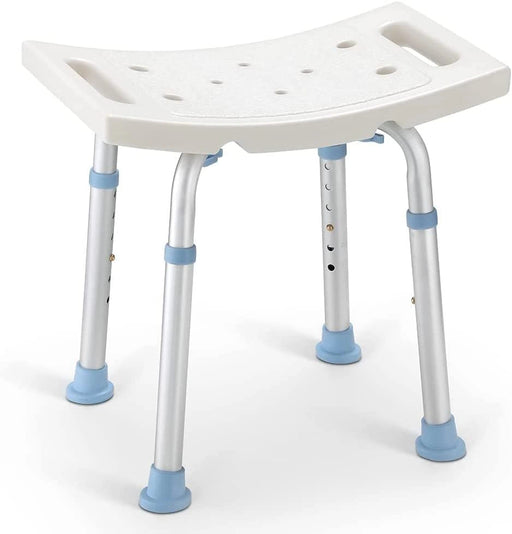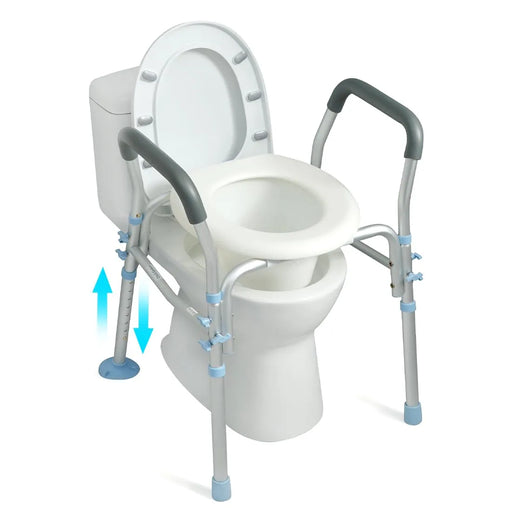Something you should know about sleep for older adults
The decline in health that comes with aging is linked to a variety of issues, one of which is trouble sleeping. Many of these issues, including a decline in quality of life, are exacerbated by inadequate sleep in the elderly.
Now more than ever, it's crucial to comprehend the influences of aging on physical conditions in order to properly care for the diverse requirements of the elderly.

How much sleep do elderly people typically require?
After the 60s, it's normal for there to be some shifts in how you sleep. Hormonal and melatonin fluctuations might make it harder to fall asleep, leading to lighter sleep, and increased nighttime awakenings. It's possible that we'll start heading to bed earlier and getting up when the sun does.
Findings indicate that even the elderly still require 7 to 8 hours of sleep nightly, which is not significantly less than what most of us required in our twenties.

Sleep Tips for Seniors
Steps may be taken to enhance sleep quality for the elderly, according to studies. Enhancing one's sleep hygiene and forming routines that promote excellent sleep are common components of such measures.
In case you're wondering how to obtain good sleep quality in your senior years, here are some suggestions:
1. Develop Consistent Routines
Keep in mind that the difficulty of catching up on missed sleep increases with age. In order to function properly, your sleep routine should not be suddenly altered.
In addition to the fundamental practice of going to bed at the same time each night, it is essential to establish a regular routine that one must complete before getting into bed and covering themselves with sheets.

Setting up even a short routine before bedtime—showering, drinking some tea or a warm drink, reading, or listening to some relaxing music—could help to calm the mind and body in preparation for sleep.
2. Frequent Exercise
Among the finest ways for older adults to maintain their sleep quality is through regular exercise. Aerobic workouts, as well as other types of physical activities, may trigger the production of hormones that aid in inducing a more restful night's sleep.
There are a variety of fitness materials available online that include strength training, agility, and respiratory programs that older adults of varying abilities may engage in.

3. Address the Stress
Make it a priority to address any concerns or fears you have before going to bed. The control of stress could be of assistance. Beginning with the fundamentals, such as making a schedule, establishing priorities, and assigning chores. Additionally helpful in reducing stress is the practice of meditation.
4. Keep Journal
People who have problems falling or staying asleep might get two key advantages from keeping a journal.
To begin, it's a nice approach to think back on the day and help settle your thoughts as you transition into the nighttime routine of getting ready for bed.

The second benefit is that you'll develop a greater awareness of your surroundings, which will make it easier for you to have a peaceful mind.
For the purpose of keeping a record of your sleeping issues, sleep diaries are also advised. Your doctor will be able to treat your condition more effectively if he or she has a better understanding of the details of your condition.
5. Address Snoring Issues
If your snoring is so loud that it causes you to stop breathing throughout the night, you should take into account that sleep apnea is the root of your sleep issues and speak with a physician about the matter. It's possible that a C-Pap device will completely transform your life in a positive way.
6. Limit Caffeine and Liquids Before Bed
Caffeinated beverages, such as cola and coffee, may have a negative effect on an elderly person's capacity to sleep at night. If you want to avoid sleep problems as a result of drinking these drinks, you should drink them earlier in the daytime.
Additionally, consuming fewer fluids before bedtime may reduce the number of bathroom trips required during the nighttime. Of course, a healthcare provider's advice on how much water or other liquids to drink should always be followed.

7. Use Pillows for Body Aches
Strategically placing body pillows may assist decrease discomfort and enhancing your daily sleep if aching muscles are keeping you up at night. Some people who sleep on their backs like to tuck a tiny cushion under their knees, while others who prefer to sleep on their sides might do better with the pillow positioned between their knees.
8. Adjust Diet and Food Intake
The elderly's health and well-being may be improved with very few adjustments to one's way of life, and these adjustments typically have a multiplicative impact.
The correlation between what you eat and how well you sleep is an excellent illustration of this. Incorporating foods lower in sugar and processed carbs into one's diet might help promote restful nights of sleep and a more positive outlook on health in general.
9. Put Down the Device
According to a new scientific paper, staring at a screen for an extended period of time before going to bed might cause melatonin production to drop, as well as REM sleep and the overall difficulty of getting to sleep.
There is some evidence that exposure to electronic devices like televisions, telephones, and interior lighting might make it harder to go to sleep. Don't sleep in front of the telly and remove it from your bedroom.
Get all gadgets out of bed and use them exclusively for resting and making out. Throwing away electronic gadgets for at least 40 min before going to bed will assist in the body's ability to unwind and get ready for a restful evening.

10. Limit Daytime Naps
Naps taken for an excessive amount of time during the day might make it difficult to fall or stay asleep at night. Naps should not last more than an hour, and those taken in the late afternoon should be avoided.
Night shift workers, on the other hand, may have to catch up on sleep with a late-afternoon nap before heading into the office.
11. Contact Health Care Provider
Reconsider the use of sleeping tablets, despite the fact that they might help us fall asleep, medicated sleep is significantly deficient in the normal sleep cycles that are ideal for the brain. They should not be used for more than a brief period of time and should only be done so under the direction of a trained medical practitioner.
In all likelihood, you're not the only one who sometimes has trouble falling or staying asleep. Consult your health care practitioner, however, if you find that you have problems falling asleep or staying asleep on a regular basis.
Finding the underlying reasons for your sleep problems and addressing them will help you receive the quality of sleep you need and enjoy.
12. Talk With Family, Friends, and Colleagues
If you're having trouble sleeping, chatting to those around you might help you feel more at ease and secure. Not only is it crucial to alert those around you if you suffer from serious hypersomnia or narcolepsy, but it can also help you avoid any unwanted consequences.
When dealing with a health problem, it would be helpful to talk to others about your worries and get their suggestions on the situation.
The Ending
You should save this article if you or a member of your family is having trouble sleeping. It is not necessary to take drastic action in order to improve the quality of our nightly slumber; rather, we may begin by making a few simple adjustments to our everyday routines.
Recommend Products
-
 Sale
Sale
Standard - 300LBS Capacity Shower Stool
Original price $51.99From Original price $29.99Original price $51.99Current price $29.99From $29.99Current price $29.99OasisSpace Medical Square Shower Stool for Bathtub OasisSpace Square Shower Stool for Bathtub is approved as the highest standard(FDA) for medical...
View full detailsSaleOriginal price $51.99From Original price $29.99Original price $51.99Current price $29.99From $29.99Current price $29.99 -
 Sale
Sale
300LBS Capacity Raised Toilet Seat with Arms
Original price $120.99From Original price $69.99Original price $120.99Current price $69.99From $69.99Current price $69.99OasisSpace Raised Toilet Seat with Arms - Safe and Convenient OasisSpace Raised Toilet Seat with Arms provides stable support for users to sit dow...
View full detailsSaleOriginal price $120.99From Original price $69.99Original price $120.99Current price $69.99From $69.99Current price $69.99



